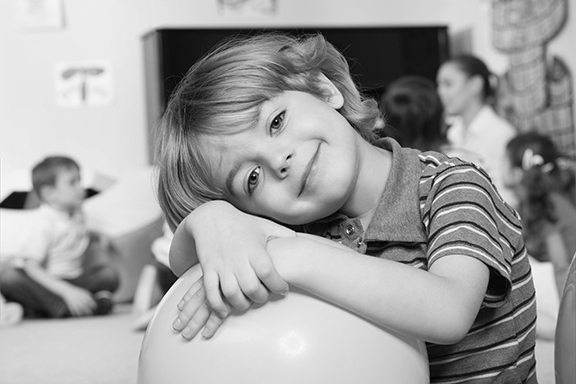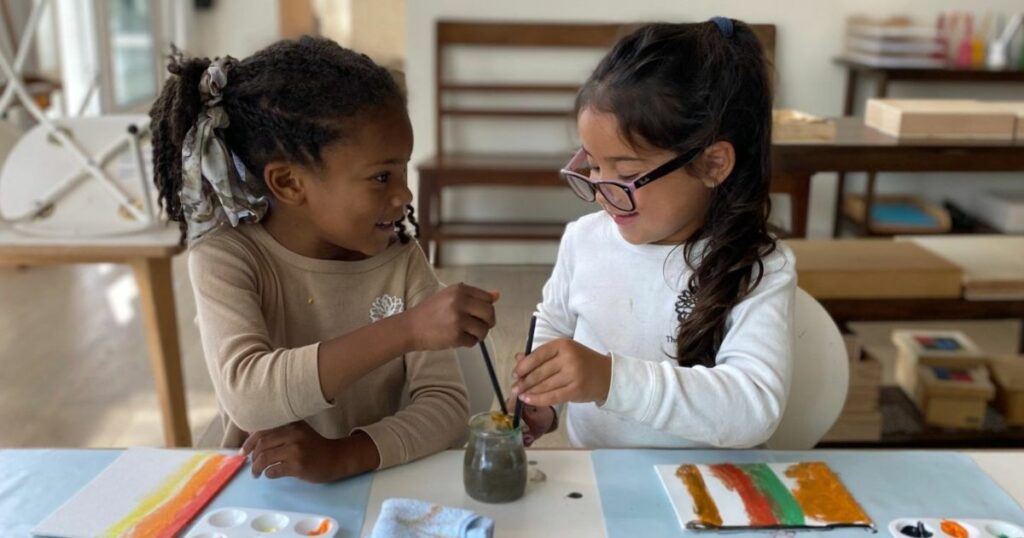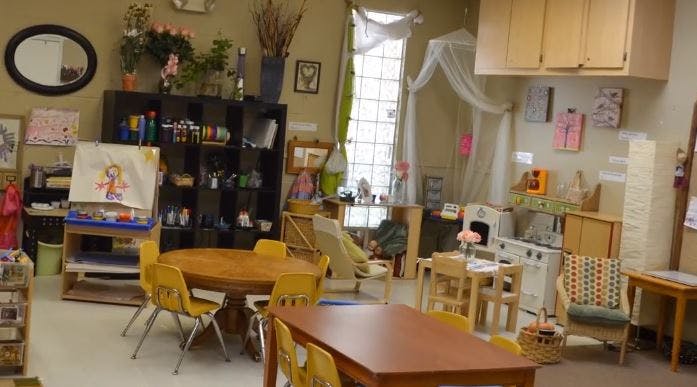To develop potential in the child parents must choose the right education program. Because of countless options, it is tough to decide on one. Also, parents must consider all the vital factors when it comes to choosing the schools. Though there are different options available, yet it is suggested that you pick a Montessori school.
As a responsible parent, you would undoubtedly want to provide your child with the greatest possible education. It is important to remember that between the ages of two and six, a child absorbs the most information from his surroundings. The mind of a child is like a sponge. Children take in everything they see and hear. As a result, this time in a child’s existence is critical. This time can be summed up as a child’s formative years.
What is a Montessori Education?
- Every kid is seen as an individual. Montessori education acknowledges that children learn in a variety of ways and caters to all of them. Students are also allowed to learn at their own pace, with the teacher guiding them and a personalized learning plan as they progress through the curriculum.
- Montessori kids develop order, coordination, concentration, and independence from an early age. From toddlers through adolescents, classroom design, resources, and daily routines assist the individual’s developing self-regulation (capacity to educate oneself and think about what one is learning).
- Montessori children have a great deal of independence within particular parameters. Students are active participants in selecting what their learning focus will be, working within the limitations given by their teachers. Internal happiness fuels a child’s curiosity and interest, resulting in joyful learning that lasts a lifetime, according to Montessorians.
The importance of Montessori education
- A Montessori House of Children is a facility where Montessori-trained adults monitor children’s activities. Adults who have been trained in the Montessori approach are known as Montessori-trained adults.
- The function of the Montessori-trained adult in the development of the child’s personality and intellect is crucial. One of the key objectives of the Montessori-trained adult in a Montessori environment will be to instill self-confidence and so enhance the child’s self-esteem.
- Self-confidence should be established in a child at a young age, according to numerous studies. In reality, the Montessori method is the only educational technique that focuses on a child’s development of self-confidence and self-esteem.
- Statistics and research have proven beyond a shadow of a doubt that children who began their learning years in a Montessori environment have performed significantly better in life than children who received traditional schooling. It is one of the main reasons for the Montessori Methodology’s increasing popularity.
- Montessori students become confident, eager, self-directed learners when they are given the freedom and encouragement to question, dig thoroughly, and find connections. They can think critically, collaborate effectively, and act boldly—a 21st-century skill set.
- Montessori education is a unique approach to education that focuses on the growth of students rather than the acquisition of knowledge. To put it another way, it does not put a priority on tests, quizzes, or grades. It strives to produce students who are mature and socially adept.
- Children learn the importance of independence in Montessori classrooms. As a result, they are capable of making sound judgments and seeking knowledge on their own. They also learn to support and assist one another, which fosters a sense of responsibility. According to Tracy Yarke, a Montessori teacher at Rasmussen College, the Montessori method harnesses the child’s interests to ignite learning and allow them to develop at their speed.
- Montessori education helps children develop leadership, coordination, and concentration abilities by focusing on diverse tasks at varied paces for each child. The pupils have a lot of leeways to choose their activities, but they must all follow certain guidelines. In addition, students are educated in a family setting. It provides them with the support and encouragement they need to pursue knowledge on their own.
The popularity of Montessori Education around the world:
- According to a recent analysis by Dr. Elliott Landon, a superintendent of schools in Long Beach, offering a good pre-school education is linked to enhancing the quality of education at both the local and national levels. Since 1981, the number of Montessori schools in the United States has increased by 33%.
- On a global scale, Montessori schools have opened in a variety of areas. Egypt, Thailand, Tanzania, Mexico, and Argentina all have schools.
- The majority of these schools were founded in the twenty-first century. The refugee communities in those developing countries have embraced the schools.
The takeaway:
Montessori education meets all the student’s needs. The education program lets children develop their potential. From supporting an aspect of child development to creating a match between the child’s natural interests; the Montessori education program has different features that make it different from others education methods.






